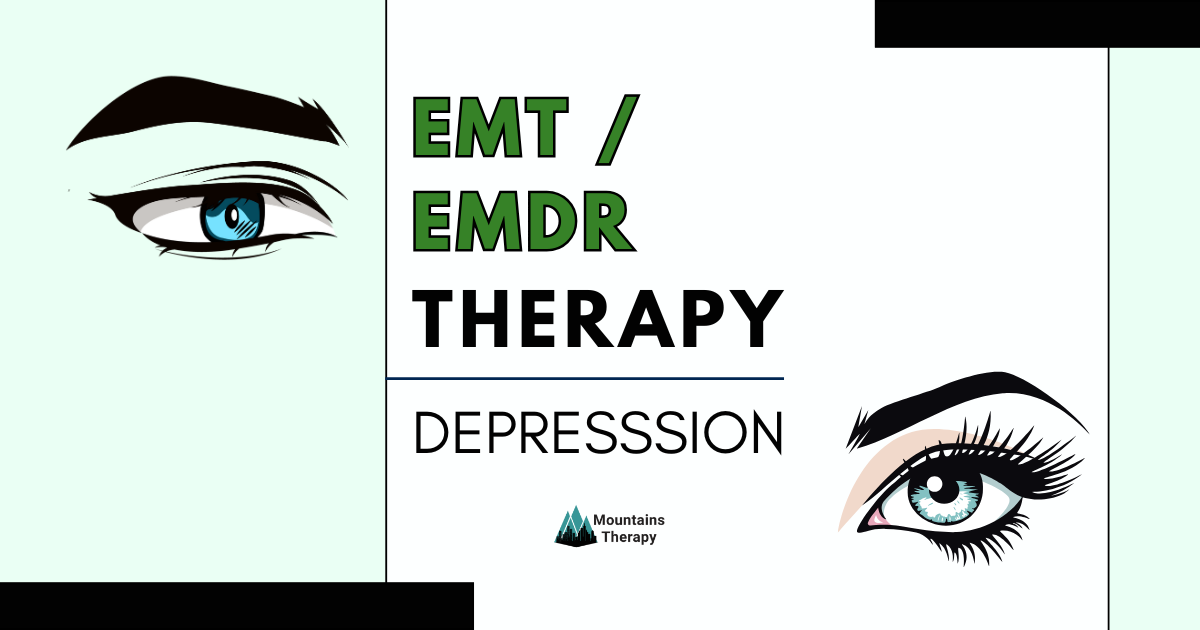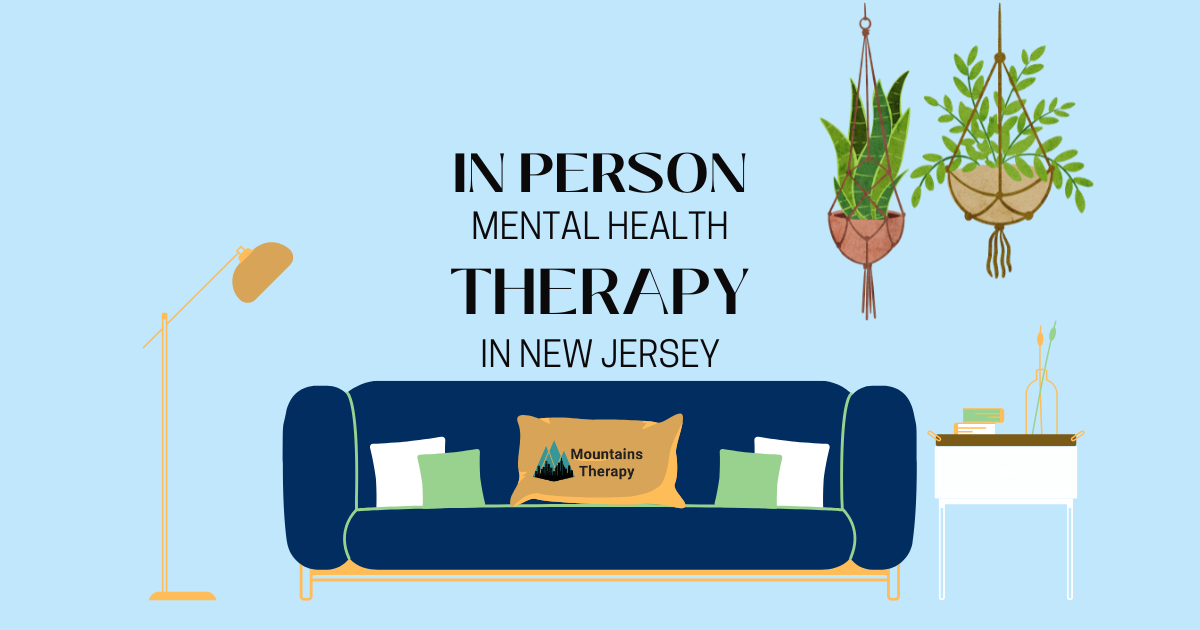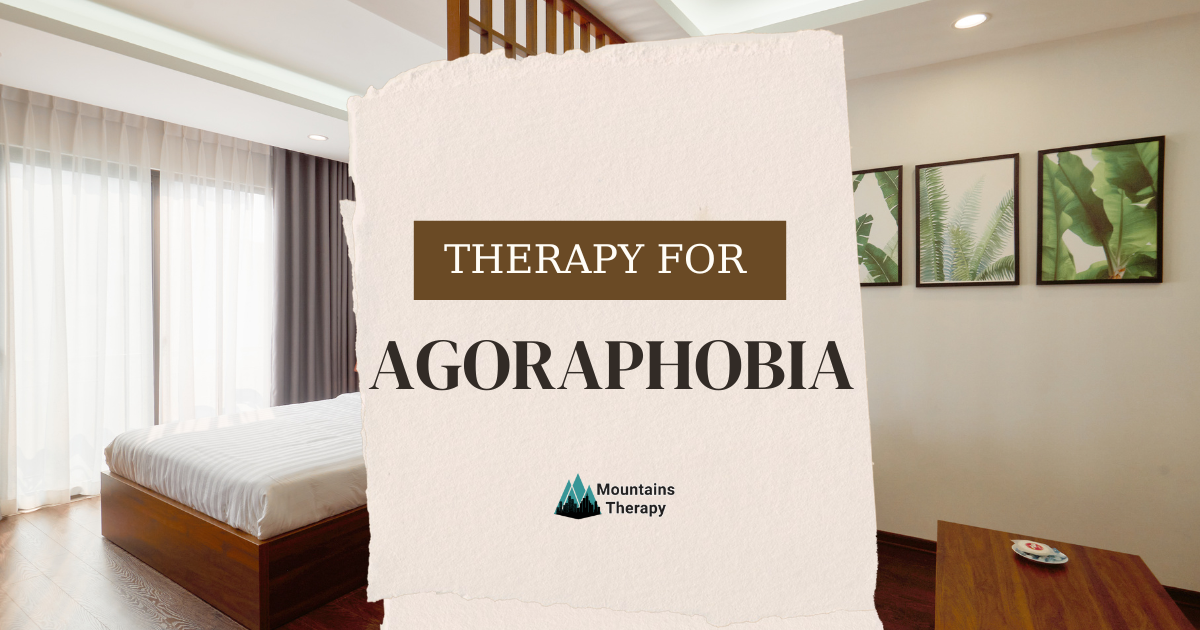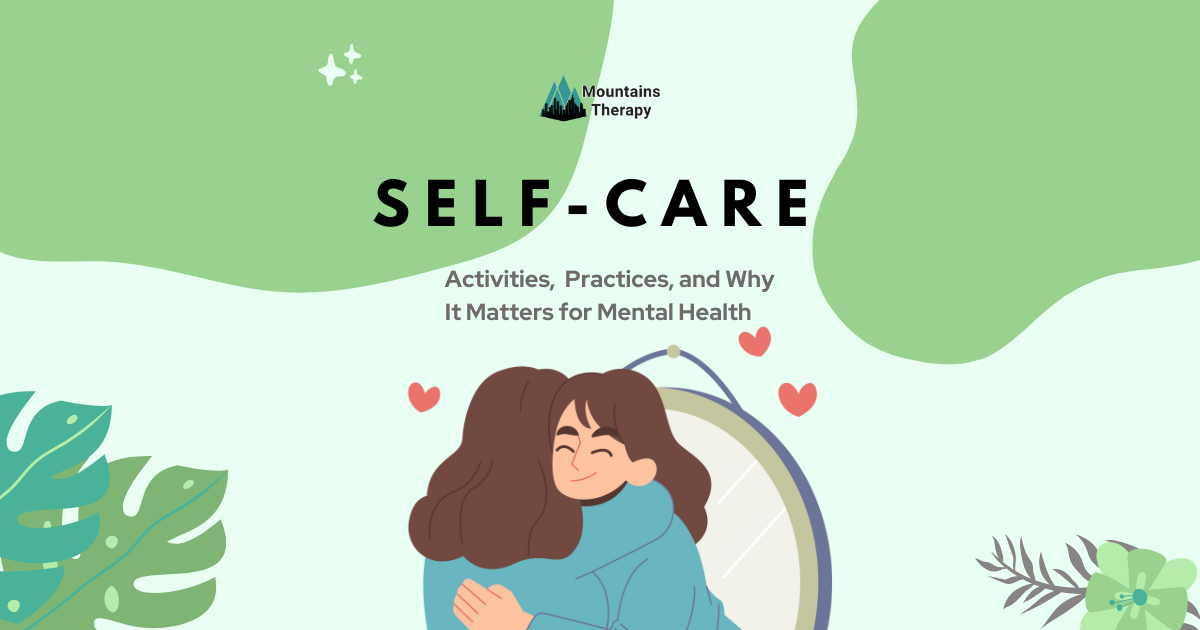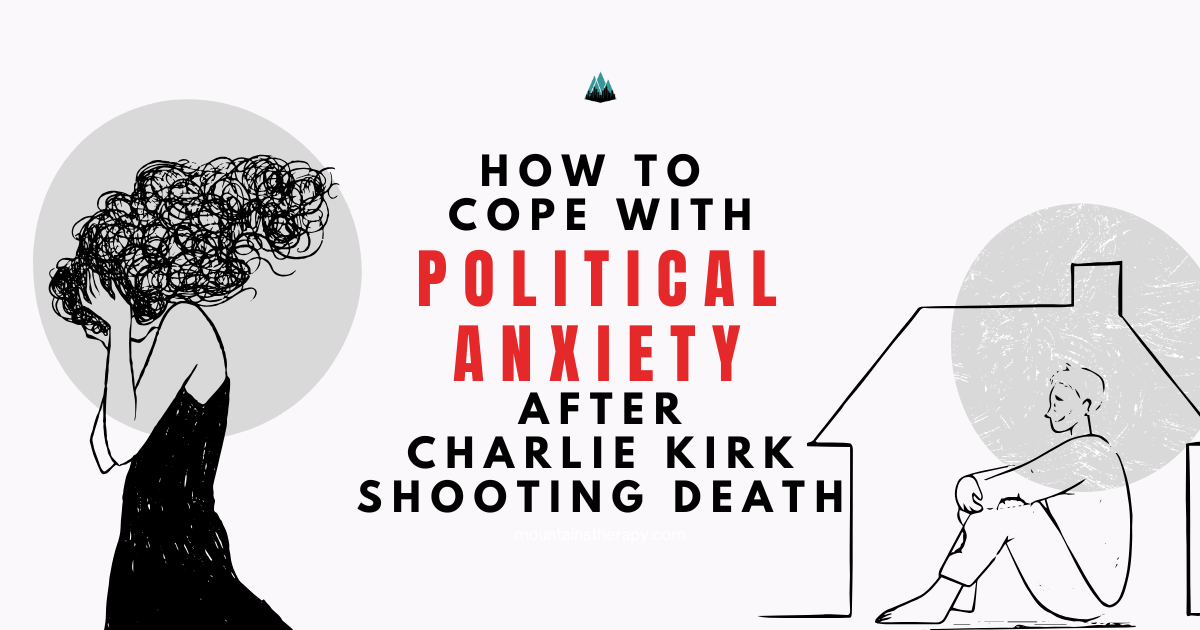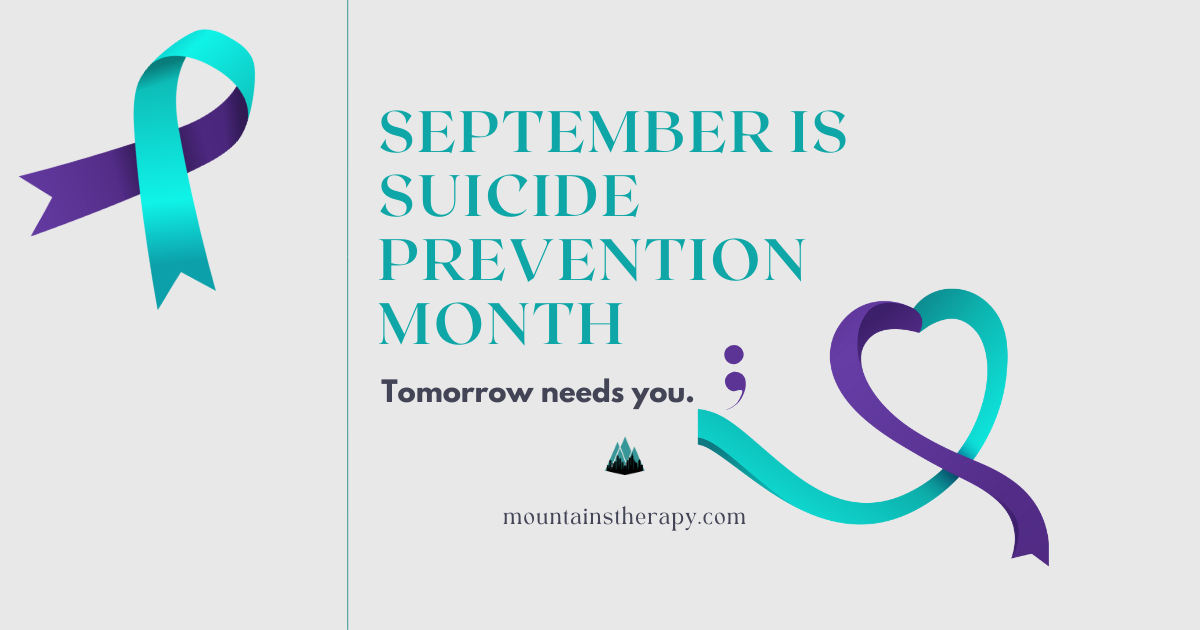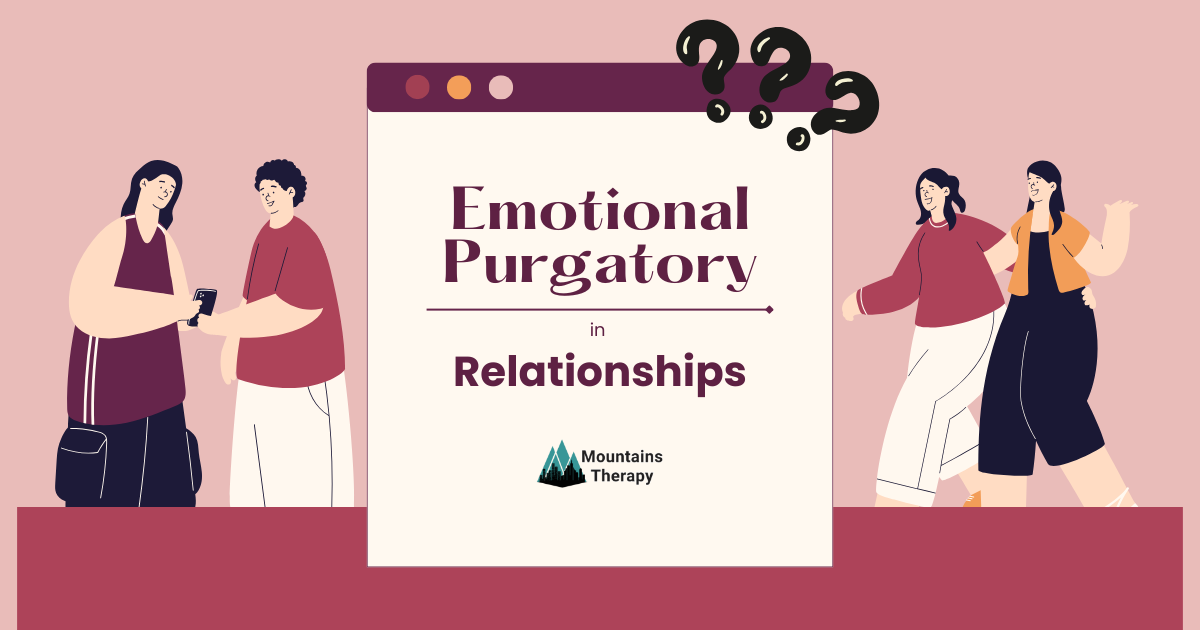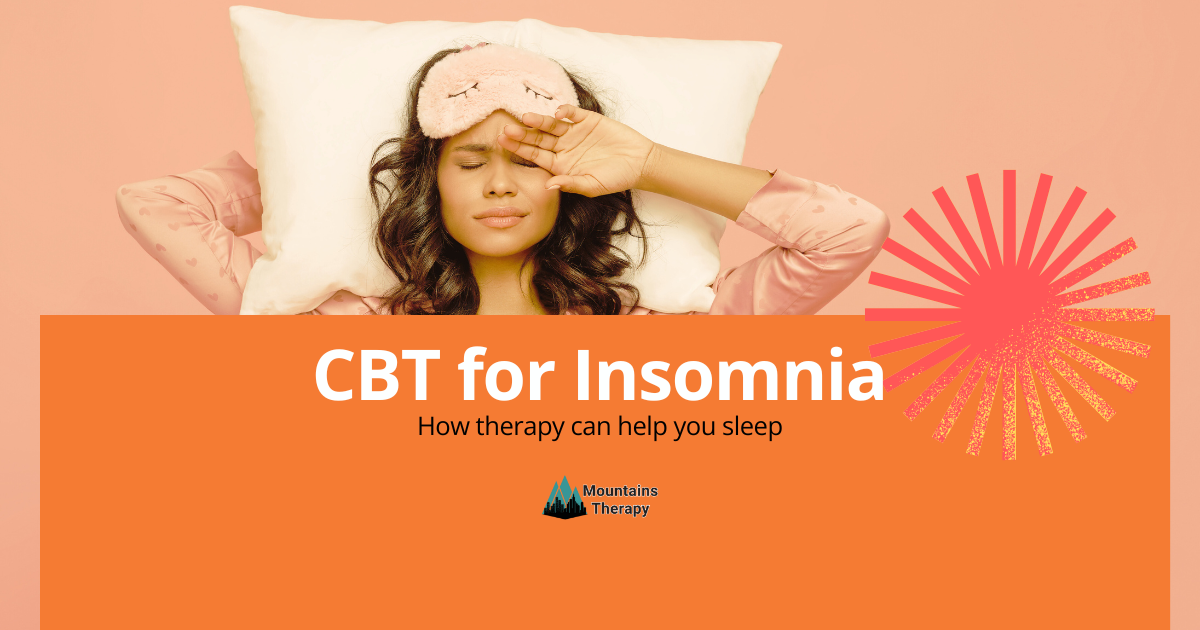What Is EMT Therapy for Depression and Trauma? EMDR Therapy Explained
Learn more about Depression Therapy in NJ.
In This Blog, You’ll Learn:
✅ Why “EMT Therapy” usually refers to
EMDR Therapy
✅ How EMDR works to treat trauma and depression
✅ Symptoms and conditions EMDR may help with
✅ Myths vs. facts about EMDR therapy
✅ How EMDR and TMS can be used for depression
✅ How Mountains Therapy integrates these treatments
Understanding “EMT Therapy” vs. EMDR Therapy
When people search for EMT Therapy for Depression and Trauma, they are usually looking for EMDR Therapy (Eye Movement Desensitization and Reprocessing).
EMDR is a well-researched psychotherapy that helps people process distressing memories by focusing on them while experiencing bilateral stimulation (such as side-to-side eye movements, sounds, or tapping). This process helps the brain “re-file” painful experiences so they no longer cause the same emotional distress.
Unlike talk therapy alone, EMDR directly targets the way memories are stored in the brain, making it especially effective for trauma, PTSD, depression, anxiety, and phobias.
How EMDR Therapy Works
Unprocessed memories can feel stuck, keeping negative thoughts, emotions, and body responses “frozen in time.”
During EMDR, a therapist guides you to:
- Recall a distressing memory or negative belief.
- Engage in bilateral stimulation (eye movements, tapping, or sounds).
- Allow the brain to reprocess the memory, reducing its intensity.
Over time, clients often feel less triggered by the memory and more able to think about it with a sense of closure or peace.
Conditions EMDR Therapy Can Treat.
While best known for trauma, EMDR is also effective for:
- PTSD and complex trauma
- Helps reduce flashbacks, nightmares, and hypervigilance by reprocessing traumatic memories in a safe and controlled way.
- Depression and negative self-beliefs
- Supports healing by shifting deeply rooted thoughts like “I’m not enough” into more balanced, compassionate beliefs.
- Anxiety and panic attacks
- Decreases the emotional intensity of triggers, helping you feel calmer and more in control in stressful situations.
- Phobias and fears
- Desensitizes overwhelming responses to specific fears, allowing you to approach them with less distress over time.
- Grief and loss
- Helps process painful memories of loss so they don’t remain overwhelming, making space for acceptance and meaning.
- Other distressing life experiences such as abuse, medical trauma, or accidents
Reduces the lasting emotional impact of difficult experiences so they no longer interfere with daily functioning.
EMDR Therapy for Depression
Many people with depression carry unresolved experiences, guilt, or shame that fuel self-critical beliefs. EMDR can help by:
- Reprocessing painful memories linked to sadness and hopelessness
- Reducing rumination and intrusive thoughts
- Creating space for new, healthier self-beliefs
- Supporting long-term recovery when combined with therapies like CBT or mindfulness
Myths vs. Facts About EMDR
Myth: EMDR erases your memories.
Fact: Memories remain, but their emotional intensity decreases.
Myth: EMDR is hypnosis.
Fact: Clients are awake and in control throughout the process.
Myth: EMDR is only for PTSD.
Fact: EMDR also helps with depression, anxiety, grief, and other concerns.
Myth: EMDR works instantly.
Fact: Some feel relief quickly, but most benefit from multiple sessions.
TMS Therapy for Depression
Another treatment often confused with EMT is TMS Therapy (Transcranial Magnetic Stimulation). Unlike EMDR, which is a form of psychotherapy, TMS is a non-invasive medical procedure that uses magnetic pulses to stimulate nerve cells in the brain areas responsible for mood regulation. TMS is often recommended when traditional treatments—such as medication or talk therapy—haven’t been effective. It is FDA-approved for treatment-resistant depression.
TMS may help with symptoms such as:
- 🌧️ Ongoing depression despite therapy and medication
- 🛌 Low energy, poor sleep, and loss of motivation
- 🌀 Treatment-resistant depression
How TMS works:
A magnetic coil is placed on the scalp, delivering pulses that stimulate brain activity. Over several sessions, this can help regulate mood and improve overall functioning.
At Mountains Therapy, we may collaborate with providers who offer TMS Therapy for Depression, while supporting clients with Individual Therapy, EMDR, and other evidence-based approaches. This combination ensures both the biological and psychological aspects of depression are addressed.
Postpartum Depression Therapy
Depression doesn’t only appear after traumatic events or long-term struggles—it can also emerge following the birth of a child. Postpartum depression (PPD) affects many new parents and often brings intense sadness, exhaustion, and feelings of being overwhelmed.
At Mountains Therapy, we understand the unique challenges of postpartum depression. Our therapists create a supportive space where parents can process their emotions, explore identity changes, and develop coping strategies.
Treatments such as EMDR for unresolved birth trauma, CBT for negative thought patterns, and Mindfulness-Based Therapy for stress reduction can all play a role in healing. Therapy not only helps reduce symptoms but also supports healthy attachment and connection with your baby.
Seasonal Depression Therapy
Another form of depression that many people face is Seasonal Affective Disorder (SAD), also called seasonal depression. This type of depression often appears during the fall and winter months when sunlight decreases, leading to changes in mood, energy, and motivation.
Common symptoms of seasonal depression include low energy, oversleeping, increased cravings for carbohydrates, and feelings of sadness or hopelessness that return at the same time each year.
At Mountains Therapy, treatment for seasonal depression may include:
- CBT to challenge negative thought patterns that surface during darker months
- Mindfulness-Based Therapy to stay grounded when motivation drops
- Light therapy or encouraging healthy exposure to sunlight
- EMDR or other trauma-informed approaches if seasonal shifts trigger unresolved memories
Therapy for seasonal depression helps clients prepare for these recurring challenges, giving them tools to cope proactively rather than reactively.
How EMDR Fits With Other Therapies
At Mountains Therapy, EMDR can be combined with other evidence-based approaches for holistic healing:
- ACT (Acceptance Commitment Therapy): Helps clients focus on values-driven living.
- CBT (Cognitive Behavioral Therapy): Restructures negative thought patterns.
- DBT (Dialectical Behavioral Therapy): Strengthens emotion regulation skills.
- Mindfulness-Based Therapy: Supports presence and stress reduction.
- Psychodynamic Therapy: Explores root causes and early experiences.
Together, these methods provide a tailored, compassionate path toward recovery.
FAQs About EMDR and TMS
Is EMDR safe?
Yes. EMDR is an evidence-based, widely researched treatment considered safe for trauma and depression when guided by a trained therapist.
Is TMS safe?
Yes. TMS is FDA-approved, non-invasive, and generally well-tolerated. Most side effects are mild, such as scalp discomfort or headaches.
Can EMDR and TMS be used together?
Yes. While EMDR targets the way the brain processes distressing memories, TMS addresses brain activity directly. They can complement each other for some clients.
Why do people call it EMT therapy?
“EMT therapy” is a common mislabel, what most people are seeking is EMDR Therapy or TMS Therapy.
Taking the Next Step Toward Healing
If you’ve been searching for EMT Therapy for Depression and Trauma, you’re likely looking for EMDR Therapy or TMS Therapy. At Mountains Therapy, we specialize in evidence-based approaches tailored to your needs through Individual Therapy in NJ, Online Therapy in NJ, and In Person Therapy in NJ. You don’t have to carry the weight of depression or trauma alone—reach out today and discover how EMDR and TMS can support your healing.
Short Quotes About Depression
💬 “Depression is not a sign of weakness. It’s a sign that you’ve been strong for too long.”
💬 “Your depression does not define you—it’s just a chapter in your story.”
💬 “Healing doesn’t mean the damage never existed. It means the pain no longer controls your life.”
💬 “Depression is like a cloud—it may block the sun for a time, but it can’t stop the light forever.”
💬 “Asking for help with depression is a form of strength, not weakness.”

